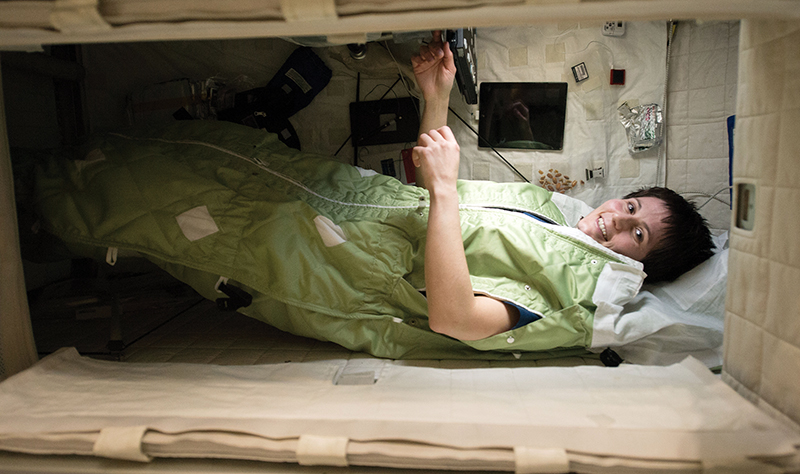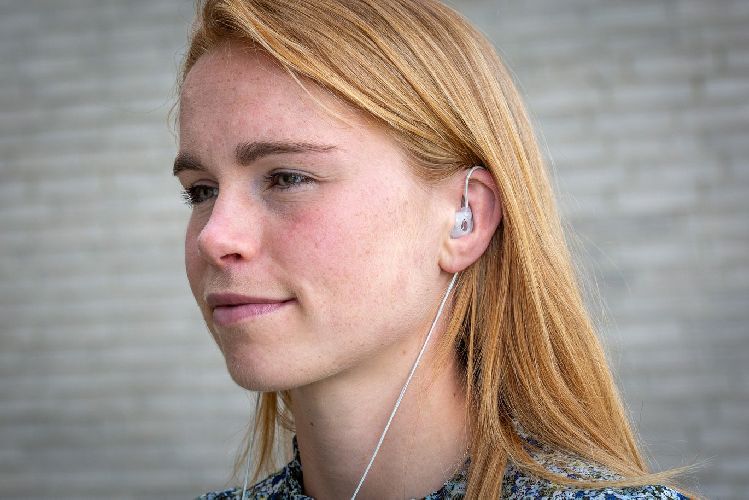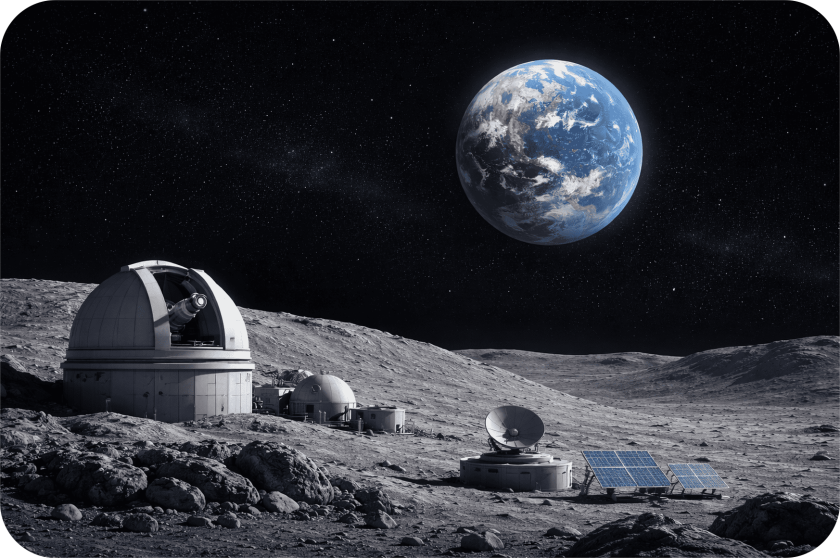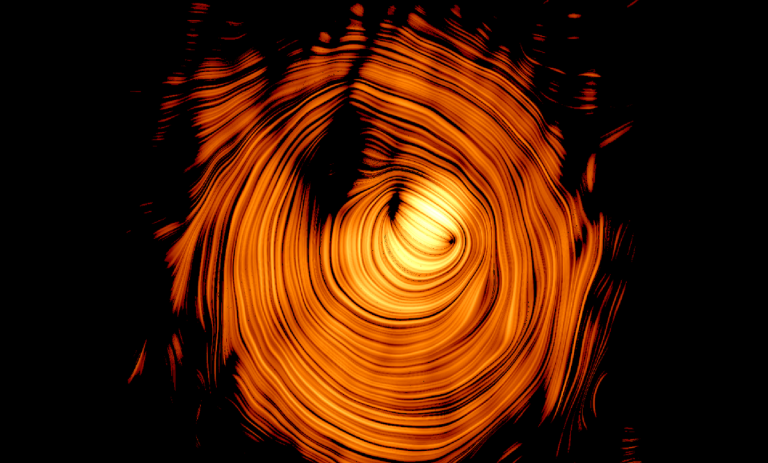
Sleep is the most vital process for overall mental development. Irrespective of age, sleep deprivation leads not only to mood fluctuations the next day but it also affects the overall productivity including decision-making skills, creativity and judgment.
Astronauts who spend quite some time in zero gravity face issues while maintaining normal sleep patterns. Even an artificial day-night cycle does not help them in keeping up with a natural circadian rhythm.
Therefore, to get more understanding in the brain’s electrical activity and map sleep patterns, researchers at Aarhus University have developed an ‘ear-EEG’ (ear-ElectroEncephaloGraphy) device.
Danish astronaut Andreas Mogensen will shuttle to the ISS with the device, to track the difference of sleep patterns while in space and on earth.
Sleep in Orbit
Quite a few psychiatric disorders and neurodegenerative diseases are a result of sleep deprivation.
There is no clinical data backing up correlation between experienced sleep quality and physiological sleep. However, as per Professor Preben Kidmose, from Aarhus University, physiological sleep is more important to our cognitive functions.
He further added that we have data regarding the quantity of sleep that astronauts take in space. But when it comes to the understanding of the kind of impact space affects on their sleep physiologically, we have no empirical data. And that is the objective of the current project, also called the “Sleep in Orbit”.
The ear-EEG
The ear-EEG is a tiny device deployed in the ear from where it’ll track the electrical activity in the brain. Electrical impulses travelling through brain produce small voltage changes that can be observed on the surface of the skin inside the ear.
During sleep brain produces a specific pattern of electrical signals. Both delta waves (0.5-3 Hz) and theta (3-8 Hz) waves occur during sleep. Delta waves are the slowest waves and associated with deep sleep, meditation, and healing. While theta waves help in reducing anxiety to reducing chronic pain. However, delta waves are the waves that dominate during deep and restorative sleep.

The ear-EEG can detect these various (sleep) patterns depending on the brain’s electrical impulses. The researchers envision that this technology will assist not only in giving empirical data but it will also help in conducting long-term measurements of brain activity.
Unlike the traditional EEG measurements that required placement of electrodes on top of the surface of head, the new tech involves ear pods like structure, placed in ears.
Thus, ear-EEG is relatively gentler and less cumbersome than conventional sleep measurements technology.
Takeaway
Researchers envision that as space tech is improvising exponentially, we as humans might have to stay in zero gravity for much longer time. So, we need to understand how living in space impact our sleep. With the new ear-EEG tech, we will get first hand empirical data through which researchers can help astronauts get a better night’s sleep (in space).
Portability and the overall tech of the ear-EEG device looks promising. I’m sure it’ll provide solution to the most sought-after problem of long term affect of sleeping in space.
Via: AU Engineering



